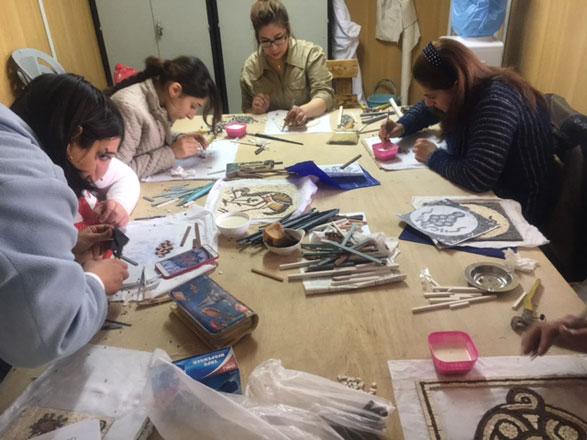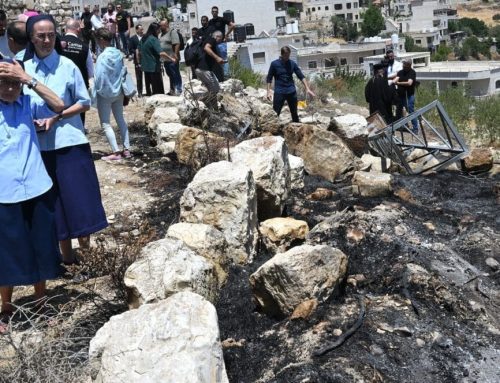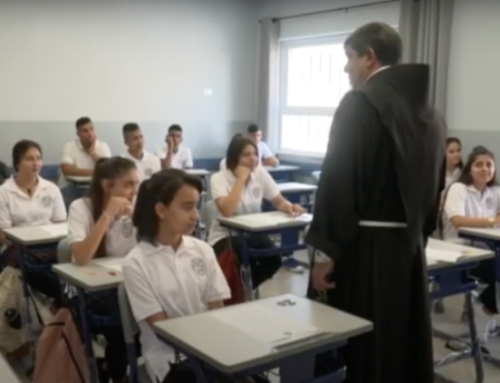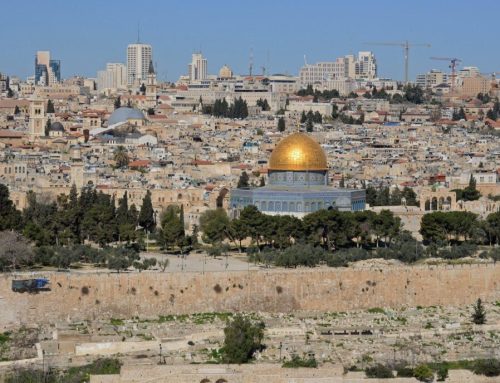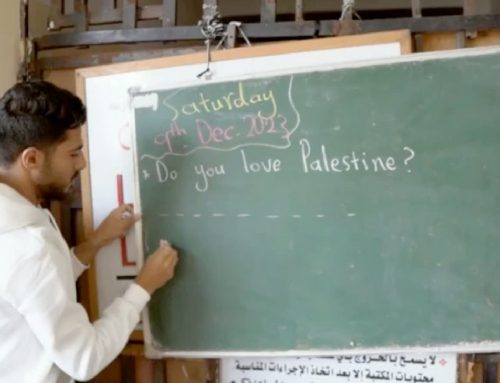MADABA — Aimed at helping people displaced by war and terror rebuild their lives, a project in the “City of Mosaics” is training Iraqi refugees with skills to face future challenges.
The Living Mosaic project in Madaba, 30km southwest of Amman, is financially supported by the Patriarchate of Jerusalem in cooperation with the Knights of the Holy Sepulcher of Germany, according to Father Imad Twal, a Catholic priest in Jerusalem.
The initiative teaches Iraqi refugees to design and craft mosaics in order to earn a living.
Nihad, not her real name, is one of thousands of Iraqi Christians who took refuge in Jordan after the Daesh terror group took over parts of Iraq in 2014, forcing them to leave their country or risk death.
“I used to be a biology teacher and I loved it. Now I am a refugee, broken, tired and very much desperate, and I say that on behalf of everyone I know,” the 37-year-old told The Jordan Times.
For Nihad and 15 others, life has become a little more bearable since joining the Living Mosaic project.
The Latin Patriarchate funds the project and provides all the raw materials: mosaic stones, glue, frames and paint, Twal said.
In addition to teaching refugees a new skill, the project helps each family earn JD10 per day, creating job opportunities and helping them cover their living expenses, according to the Catholic priest.
“The project is to give dignity to those families, and, being in the ‘mosaic city’, with its historical connection to ancient art, what better skill to give than mosaic art, which will stay with them and benefit them for the rest of their life,” Twal said during a recent visit to Amman.
“We are busy now, we don’t think of our problems like before. We learn new abilities and develop new skills,” said Nihad.
From the beginning of the Living Mosaic project in November last year, one month of training has been given to each participant, so far benefiting 15 families, said Ragda Zawaideh, the project director.
In the Melkite Church yard, the refugees are divided into groups; some working on making mosaic floors, others working on walls and pictures.
Dealing with the refugees was a delicate task at the beginning, Zawaideh noted.
“Overcome by their situations, many were suffering from depression; they were glued to their mobiles most of the time, waiting for a call or a message from officials to give them hope or answers as to when they will depart, a matter which left the majority tense, and short tempered,” the project director recalled.
However, in a short space of time, the refugees excelled in their newly-acquired craft, valuing the chance to socialise together and being appreciative of the income that helped most of them to, at least, pay their rent.
The Living Mosaic project is part of a bigger initiative dedicated to aiding refugees in Madaba, funded by Caritas Jordan in cooperation with the French embassy.
According to a Caritas report, Madaba’s refugee population has been growing due to lower rent and prices compared to Amman.
Wael Suleiman, director of Caritas Jordan, told The Jordan Times that Caritas has several projects in Madaba in addition to the Living Mosaic.
He said that among the many project Caritas provides for refugees are livelihood training skills, carpentry and upcycling training, handcrafts (mosaic, sewing and embroidery, mud and clay, soap and wax making), as well as courses in cooking and catering.
“Securing livelihood opportunities for Iraqi refugees in Jordan is one of the major objectives of Caritas, and we do this through providing skills training and by establishing a business incubator in Madaba Melkite Church, where many displaced Iraqis live,” Suleiman explained.
He said that Iraqi families are still forced to flee their homes and those already living as refugees are unable to return, causing the Iraqi refugee populations to continue to rise in Jordan.
According to the Caritas report, citing UNHCR figures, the total number of active UNHCR-registered Iraqis in Jordan is 51,837 as of November 2015, , with 89.6 per cent in Amman followed by 4.5 per cent in Zarqa, 1.9 per cent in Balqa and 1.3 per cent in Irbid.
Source: Jordan Times

